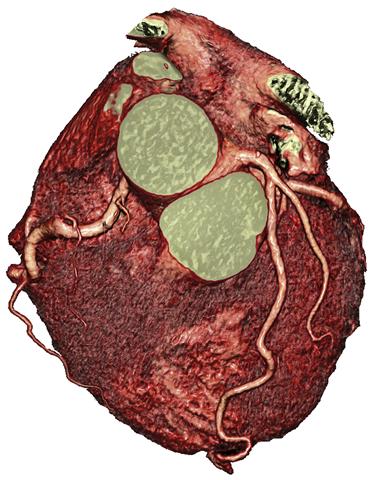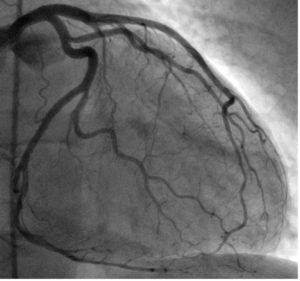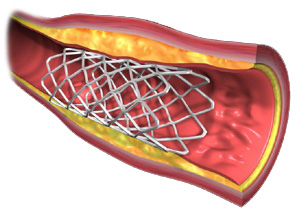Coronary heart disease and risk of heart attacks
8 April 2020 / 5:26 pm

What is it?
Coronary heart disease (CHD) is narrowing of your heart arteries due to fatty deposits in the artery walls. It is more common in smokers and in people with high blood pressure, diabetes and high cholesterol.
How common is it?
CHD is the commonest cause of death in the UK. 1 in 5 men and 1 in 7 women die from CHD. There are over 2.5 million people in the UK living with CHD.
What symptoms might I get?
CHD can cause symptoms of chest pain or breathlessness during exercise. Some people with CHD have no symptoms but can present suddenly with heart attacks or cardiac arrest.
What extra tests are required?
Most patients with CHD require additional testing such as an exercise stress test to evaluate symptom response and imaging such as a CT scan or a coronary angiogram.
Will I need treatment?
Yes. If you have been diagnosed with CHD then you will usually be prescribed medication including aspirin to thin the blood and reduce the risk of heart attack and a statin to reduce the rate of fatty deposits in your arteries. Some patients with CHD require additional treatment to open up blocked arteries (angioplasty / stenting) or coronary artery bypass surgery.


Is it hereditary?
There are some families who have a higher rate of CHD.
Does this affect my life expectancy?
It can do, although most people with CHD lead a normal life with few symptoms. The risk of heart attacks can be reduced by adjustments to lifestyle and medication.
What happens next?
If you have been diagnosed with CHD then you will be offered lifestyle advice to reduce your risk of heart attack and a follow-up consultation can be made with a local cardiologist. Advice generally involves stopping smoking, exercising more, losing weight, watching your diet, as well as medication to control blood pressure and cholesterol.
Useful links
More Posts
16 March 2024
Developing a new strategy for healthy Islanders
4 February 2024
A digital health diary for Jersey
27 December 2022
Utilising artificial intelligence in cardiology practice
12 June 2022
Under the bonnet – time for your heart’s MOT
12 March 2022
What is heart valve disease and what does that mean for me?
12 January 2022
Preventing heart disease using augmented digital health intelligence
1 October 2021
How heart health has been impacted by COVID-19
1 August 2021
The importance of the rhythm of your heart
21 June 2020
What is atrial fibrillation?
11 January 2020
The Era of Immersive Health Technology
22 September 2019
The heart and stress
18 August 2019
Screening for Atrial Fibrillation and the Role of Digital Health Technologies
20 November 2018
Ectopic beats – how many count?
28 July 2018
How can immersive VR and AR technologies improve your physical and mental health?
7 March 2018
“The patient takes charge” – enhanced care with Digital Health technologies